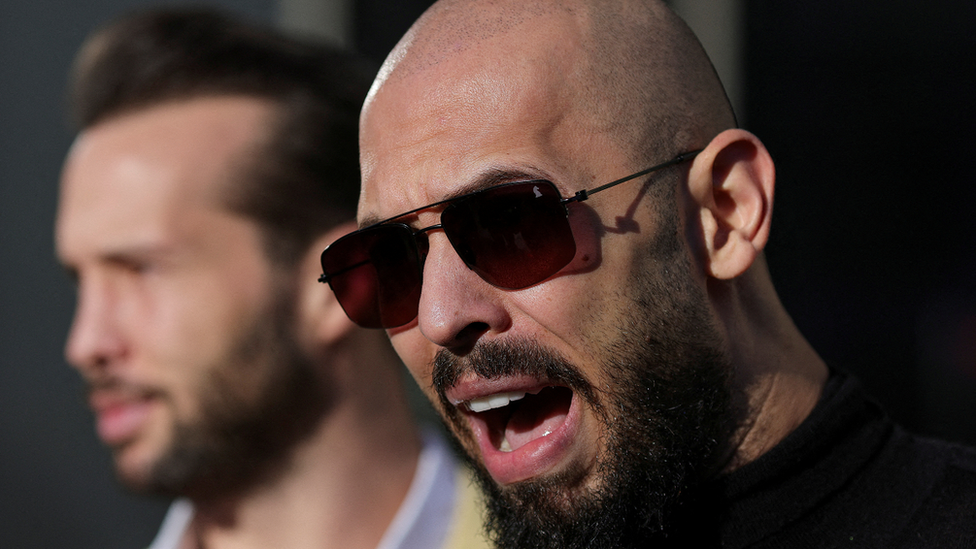Ofsted boss surprised by pre-teens with smartphones
- Published

Ofsted's chief inspector says she is "surprised" when primary school children have smartphones.
Amanda Spielman said she was "not comfortable" with younger children having unlimited internet access.
She was being interviewed on BBC Radio 5 Live about influencer Andrew Tate, who has been detained as part of an investigation into allegations of human trafficking and rape - which he denies.
Schools have been trying to tackle his influence.
Mr Tate, a former kickboxer, has millions of online followers - despite being banned from sites including TikTok, Instagram, Facebook and YouTube for misogynistic comments.
During a discussion about access to porn and adult content, Ms Spielman - the head of England's schools watchdog - said there was a "great deal" that could be done to "really limit" the content to which young children are exposed.
"The first thing you can do is not give a child a smartphone when they're too young," she said.
"I'm very surprised when primary aged children have smartphones, for example, and even in early secondary school. It's really hard to manage that."
Asked whether she thought no child under the age of 11 should be given smartphones, she said: "I'm not comfortable with younger children having unlimited internet access."
But it is "not possible to totally control and contain adolescents' lives", she added - and it is the job of schools, parents and society to make sure that children "can steer past all of these undesirable influences".
Mr Tate is being detained in Romania, alongside his brother Tristan. They both deny allegations of human trafficking and rape.

Schools have been trying to tackle Andrew Tate's influence.
Last week, some schools told the BBC they were putting out guidance on how to talk about him, as part of a concerted attempt to tackle his influence.
Ms Spielman said she first came across Mr Tate "a month or two before Christmas".
She said it was "important not to get into total moral panic" about him, and that children should be exposed to a "range of male role models" through the curriculum.
Asked whether there should be compulsory lessons on misogyny in schools, Ms Spielman said that promoting "respectful relationships" was already something that schools took seriously.
- Published27 February

- Published11 January 2023

- Published17 January 2023

- Published13 April 2022
